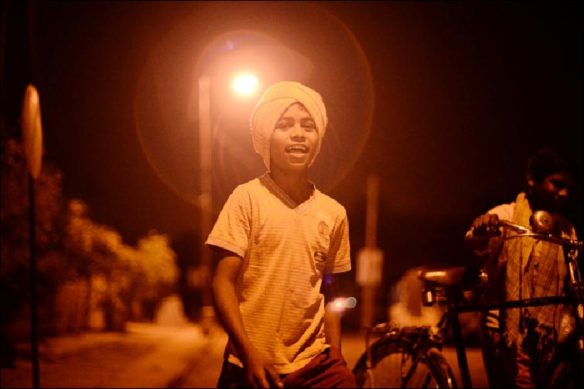The Dhudio [Working] Makkala Toofan Programme
1.Break up the problem into small manageable portions: Considering that India has about 126 million working children, the problem seems enormous. However, if the problem is broken up into smaller portions, such as at the level of Panchayats in rural areas and wards in urban areas, it becomes less daunting.
2.Local governments as nodal agencies: The programme works towards empowering local governments to be responsible for addressing the issue and for devolving all the necessary functions, finances and functionaries to them. It authorises them to enable a ‘Child Labour Free Panchayat’.
3.Participation: Panch [5] Partite Child Rights Task Force: This is an interactive platform of government and non-government actors and children, especially working children. These platforms are set up by the Grama Panchayats (village local self-government) on a Panch Partite model including representatives of (1) Working Children’s Unions, School Children’s and Tribal and Migrant Children’s Unions; (2) Makkala Mitras (children’s friends identified by children themselves); (3) Community Leaders and Parents; (4) President and Members of the Grama Panchayat and Government Officials including Teachers/Principals; and (5) Private Development Agencies and NGOs. This Panch Partite Platform functions as a ‘Child Labour Watch’ by generating and analysing information on implementation of policies and programmes, especially with reference to marginalised groups.
4.Provision: The Panch Partite Child Rights Task Force makes certain that the children of their village/ward are provided with appropriate quality education, healthcare and other facilities. It ensures that there are safe and monitored skill-providing establishments for children offering vocational training on the job. It oversees the opening of ‘Flexi’ or ‘Extension’ Schools for children who are doing their apprenticeships or working (above 14 years of age) to continue their education with a curriculum that prepares children for the world of work (labour rights, information of employment contracts, minimum wages and industrial disputes).
5.Protection: The Panch Partite Child Rights Task Force ensures that villages are safe for children. It helps children to map the danger zones in their village and take measures to ensure children’s safety. Danger zones could range from dark wooded stretches on the way to school, to unfenced irrigation tanks, lonely stretches of road, garbage dumps and liquor shops. It facilitates the election of Makkala Mitras, or children’s friends, who are elected by the children of a village, and who would act as an ombudsperson of children’s rights and protect children irrespective of caste, religion or class.


